Tom Brokaw On Nature and Life in Montana
Tom Brokaw was born in Webster, South Dakota, and began his journalism career in 1962 at KMTV in Omaha, Nebraska. With his notable baritone voice, he went on to host “The Today Show” from 1976-1981 and was the anchor and managing editor of “NBC Nightly News” from 1982-2004. Since 2005, he has served as a special correspondent for “NBC News,” producing long-form documentaries and providing expertise during election coverage and breaking news events. While New York is still home base, during the long summer months his Montana ranch provides him and his wife lessons from nature and playtime with grandchildren.
We caught up with Tom to discuss his love of the outdoors, the environment, the media, and what gives him hope.
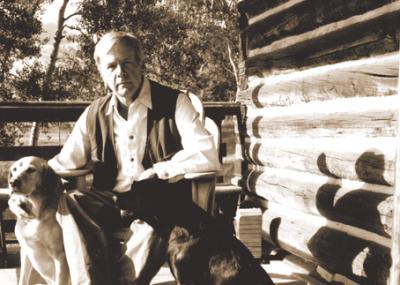
BS (Brian Schott): Can you take me through a typical day in the life for Tom Brokaw right now?
TB: In Montana, I get up around six. The first thing I do is take my dog down to the West Boulder river and dive in. I’m a big cold water buff. So whatever the season, I jump in the river to get my heart started. Then I come back and do some yoga-like exercises.
Yesterday I fished in the afternoon. My wife is riding this morning and I’ll ride tomorrow. Early this afternoon I am going to take my dog up into the hills and start to inventory the upland bird population; we look to see how the hatch went this spring. And then there’s the routine stuff like weed control and talking to the ranch manager about how we’re doing.
What is your mix between New York and Montana these days?
Montana is probably 70/30 during the summer months. But then in the fall I begin to wind my way back to New York. By late October I am back in New York because Montana starts to close down because of weather and conditions and so on.
What advice would you give to young journalists starting out today?
I think the best thing to do is to pick out an area of interest to you and pursue that. Richard Engel, our foreign correspondent, is a perfect example. He graduated from Stanford [in 1996] and wanted to be a Middle Eastern correspondent. He moved to Cairo, learned the language, and he’s made a huge reputation over there. He’s a terrific asset for “NBC News.”
Let’s go back to Montana. Do you have cattle on your ranch?
We do, but it’s a lease arrangement we have with a neighbor who is a real working Montana cattleman but he doesn’t have enough grass of his own on the family place. We lease to him about 2,000 acres. We did have bison until a couple of years ago until the state required us to vaccinate them and that complicated the situation greatly. He does it holistically, moving the cattle quickly across the grass. We’ve had the benefit of great grass for the last several years and it helps for range management.
I am curious to get your thoughts about the role of the wolf in the West and any experiences you’ve had in that regard.
As you know it’s a very hot-buttoned issue. The wolves have been in and out of our valley for five or six years now. We were in favor of wolf introduction and followed the issue very carefully from the beginning. It was not an easy issue for our neighbors. There’s been a very small calf-kill, maybe three or four. All were compensated, except one because a bear got on it, but we just said that we’d just pick up the cost of the calf. A wolf did kill a dog, a pet, recently, and that, of course, lit it up again. My own impression, and it’s not just anecdotal, is that they have proliferated a lot more than anyone had projected and I do think that we can have a management program. Two years ago when they had the hunt out here in Montana, one was shot not too far from here and the wolf pack dispersed very quickly. And the elk began to move around in an entirely different way, which is how it was supposed to work.
You’ve said many times how important the outdoors and Montana are to you. Please say more.
It’s constant renewal. I learn more from just watching the complexity of the wilderness and the grass and the animals that are around than I do from almost anything else. It’s always an instructive summer to come out here and see how nature moves on its own terms, how animals take care of each other, how they avoid predators and how the predators make their living. We don’t kill anything on the ranch. I saw a big rattlesnake again the other day—there’s a fair amount of them around—and we always let them go unless they come right into our yard where they would be a danger to our grandchildren or if they are on the path down to the pond where we swim. Other than that we let them go because we think that they are part of the whole cycle of life here. It’s always renewing to me to come west out of the urban areas where I spend so much of my time and breathe the clean air and see the grasses grow or in the cases when we have drought how devastating that can be and how on guard you have to be. I just have a new respect for life every time I come here.
Beyond your journalism you are also an author. Do you get a lot of writing time on the ranch?
I do. I’ve got a log cabin office and a commercial satellite for broadband.
Who are your writing influences, Tom?
Mostly historians and nonfiction, although I am a big fan of the classics in nonfiction. I had a long talk with Douglas Brinkley yesterday. He is doing a different book on Walter Cronkite and I keep at my bedside his book on Theodore Roosevelt, The Wilderness Warrior. [The Wilderness Warrior: Theodore Roosevelt and the Crusade for America (2009)]. But also he did a wonderful book on Reagan and his diaries and what he was thinking—he kept very meticulous diaries. In my world those are the kind of people I stay in touch with, that we have shared interests. Rick Atkinson, the military historian. Tom Friedman and I talk a lot—we are very close friends. I am always in awe of the great contemporary historians. Ron Chernow [Washington: A Life (2010)] has a book out on George Washington that I’ve been reading, and it’s both enlightening and awe-inspiring in terms of the enormous detail, the richness of the way he brought that time back to life. George Washington has always ben an enigmatic figure for a lot of contemporary people.
In a speech you gave at Montana State University you said that “information is the oxygen of a democracy.” But are we getting dizzy with so much information right now?
What I do think is that there was a time when you could be a couch potato as a citizen. You could get up in the morning and take the paper off the front stoop, watch “The Today Show” for a while, get home in the evening, watch either Walter Cronkite or Chet Huntley and David Brinkley or later Dan, Peter, or Tom—and you’d have a pretty good fix on what was going on. Now there is a tsunami of information all day long. And a lot of it comes from unknown sources. So you have to have a much more proactive attitude as a news consumer about where you are getting your information, how does it hold up, does it have credibility, does it have a separate agenda, and you have to bring the same active intelligence to information as you do to buying a new car. Or even a shirt for that matter. Or maybe making a decision about what doctor you’re going to go see. A lot of people come to me wide-eyed and say, “You’re not going to believe what I read on the Internet this morning,” and I say, “you’re right, I’m not going to believe it.”
Finally, I do want to talk about a couple environmental issues. I’m curious what scares you the most right now about how we’re treating the earth and what gives you the most hope?
What scares me in the world right now? The continued feeling among too many parties that global climate change is some kind of a fraud. That we’re not responding to it, I think, with the alacrity that it deserves. I see that wherever I go. Even well-meaning people really are not changing their habits in the way that they ought to be. And that includes us. I mean we’re doing solar here at the ranch for about half of the residences in terms of heat and water, but we could be doing more. The technology has to catch up to us a little more.
We have some specific examples of environmental problems in Montana right now—e.g., the oil spill on the Yellowstone River.
The Yellowstone is one of our “mother rivers” — it’s the longest un-dammed river in America and it appears to be an accident waiting to happen. I think they were lucky they confined it as much as they did. But these are again cautionary tales. And whenever that happens, people say—including some who are skeptics —“Oh my God. When it does happen it’s very consequential very quickly.” On the other hand, that oil was going to a refinery which produces gasoline, and no one wants to give up their SUV. Or their big houses.
Do you think with so much technology these days we are losing touch with rivers and streams and wide open spaces?
You don’t see it out here. You still see people pouring into the wilderness. My wife was out the other day riding and ran into a man who had moved out here from somewhere and he took—not a great job— just because he wanted to live in the wild as much as possible. He was out with his son doing a long day hike. I think people still have a lot of passion for those things. What I do think is that you should go into the wilderness on your own terms and not rely on GPS and your cell phone and that kind of thing. Leave those behind.
It’s a lot harder to get lost these days.
When I was coming out of the Beartooths a number of years ago, I ran into a group of young people and an older guy with them. They were scurrying around and were obviously in a frantic mode. I said, “What’s the problem?” And they said, ‘Well, he’s a Stanford professor and he’s a beta tester for a new GPS system and he put it down and now we can’t find it.’ I roared with laughter and thought—the GPS system knows where it is, but they don’t!
Final question here. In an increasingly complex world, where do you find your greatest inspirations and hope?
Wherever I’ve gone, I always see that politically, environmentally, culturally, it’s the people who are doing the right thing not for recognition or celebrity, but just because it is the right thing. Those are the people who give you hope.
~ A version of this interview ran in the Whitefish Review, Volume 5, Issue 2.
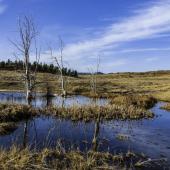
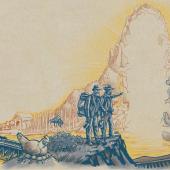
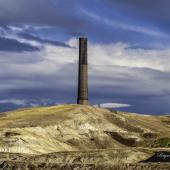
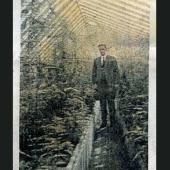
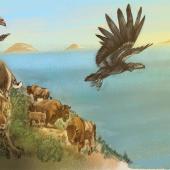
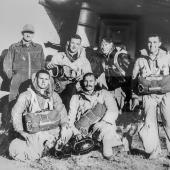

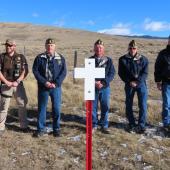

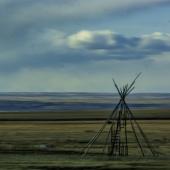
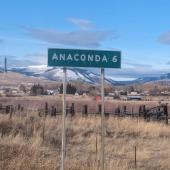
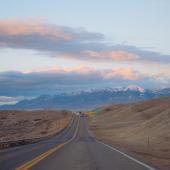
Leave a Comment Here